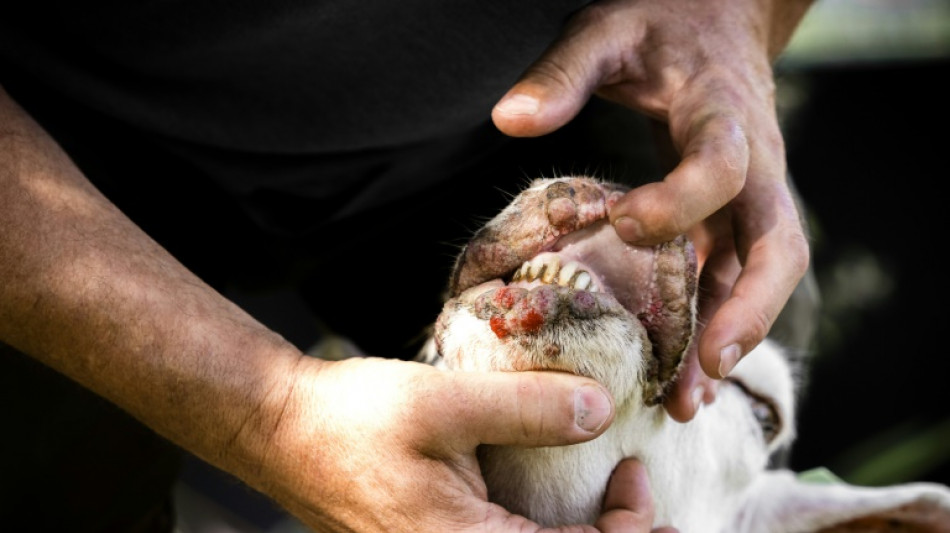
RBGPF
59.6900

Germany has seen an explosion of cases of bluetongue virus this year, authorities said Tuesday as fears increase across Europe about the disease affecting sheep and cattle.
The country has registered 1,885 outbreaks of bluetongue virus serotype 3 (BTV-3) since the start of 2024, according to the Friedrich Loeffler Institute, Germany's top animal disease research centre.
During the whole of 2023, there were just 23 outbreaks.
"There has been a real wave since the beginning of July in farms with susceptible animals," a spokeswoman for the institute told AFP.
New cases are being added every day and the number of outbreaks could exceed 2,000 by as soon as Thursday, the spokeswoman said.
The institute was unable to provide information on mortality rates.
Bluetongue is a non-contagious, insect-borne viral disease that affects ruminants such as cows and sheep but not pigs or horses. It is difficult to control once it takes hold.
It is not a risk to humans, but in animals it causes high fevers, mouth ulcers and swollen heads.
Support for farmers in tackling the disease through vaccinations is patchy in Germany as the responsibility falls to local authorities in the country's 16 states.
The first outbreak of BTV-3 was registered in Germany on October 12, 2023, according to the institute.
Since then, other outbreaks have been concentrated in the west and centre of the country, in North Rhine-Westphalia, Rhineland-Palatinate, Hesse and Lower Saxony states.
The government has issued an emergency order to temporarily authorise three BTV-3 vaccines, pending official authorisation from the EU.
Since October 2023, cases of bluetongue have also appeared in other countries including the Netherlands and Belgium.
The disease has also recently hit France, causing alarm among farmers.
BTV-3 is particularly deadly for sheep but can also cause a significant drop in milk production in cows, according to the German institute.
G.Gopinath--DT